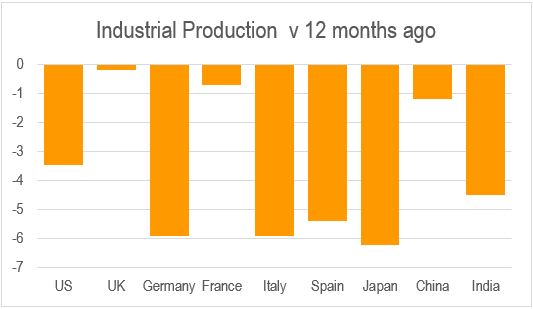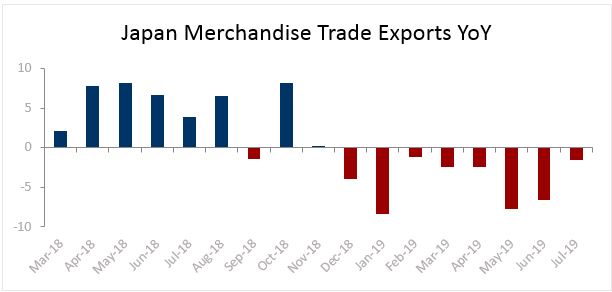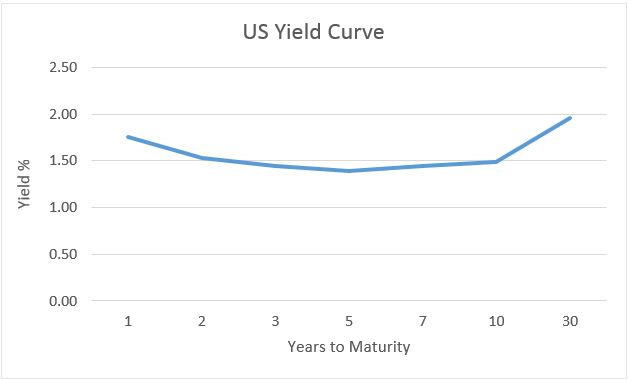
Recessions. Remember them?
Thought Leadership
Recessions. Remember them?
Fri 30 Aug 2019
Recent conversations with our clients have often begun with them expressing concern about the possible effects of Brexit on investment portfolios. Given the lack of clarity on how the situation will unfold or what the impacts might be, this is perfectly understandable. But, whilst the near term prospects for the UK economy are undeniably intertwined with the Brexit process and what form the UK’s departure (or not) from the EU might take, two points are worthy of note. Firstly whatever effect Brexit might have on the UK economy, it is highly unlikely that a similar effect will befall a well-diversified portfolio particularly one that holds overseas assets. Secondly, and more importantly, although Brexit dominates the news flow perhaps a more significant threat to portfolios is the potential for a global recession.
The current economic cycle is long in the tooth, and whilst there is no time limit on how long an economic expansion can last for we are now beyond ten years since the global financial crisis. It is true that this cycle has been characterised by lower levels of growth than previous cycles so arguably there is the potential for more growth to come, but in recent months markets have observed worrying signs to suggest that growth could turn negative.
Often considered the most reliable indicator of future economic activity, Purchasing Managers Indices (PMIs) which aggregate survey data of anticipated corporate spending have been signalling a slowdown for some months. Surveys in the manufacturing sectors of leading exporting nations have seen contraction over the past few months, and in those developed markets where we still see expansion, the measure is moving towards this neutral level. This indicative data is echoed by levels of industrial production which have fallen considerably over the last year.

It is also apparent that there has been a slowdown in global trade, particularly evidenced by the export data from countries such as Japan and Germany whose economies have been traditionally export led. Indeed the Bundesbank has warned that it expects the slowdown in exports to result in Germany entering into recession (technically defined as two consecutive quarters of negative growth) later this year. How much of this fall in exports can be attributed to the trade wars between the US and China is unclear, but it undoubtedly will have had an effect. Despite Pres. Trump declaring that “trade wars are good, and easy to win” and numerous assurances that dialogue between the two countries has been productive, there seems not to be a resolution in sight which might support the notion of a rebound in global trade levels. On the contrary, the sense is that more countries are beginning to look inward for economic growth rather than to international trade.

Such measures of economic data are concerning markets and have in part caused what many believe to be a strong recessionary signal – ‘the inversion of the yield curve’. Put simply this means that the rate of interest payable on long term loans to the Government (in this case the US) is lower than the rate on short term loans. This is counter-intuitive as generally speaking locking up money for longer periods requires a greater rate of return, and implies that bond traders expect shorter term rates to fall to counteract a slowing economy.

Historically an inversion in the US yield curve has been a reliable indicator of a forthcoming recession, having occurred before each recession in the last 50 years and only providing one ‘false signal’, i.e. no resultant recession, in this period.
Given this track record, how worried should we be? Human beings tend to have an optimism bias, meaning that we can consider information which conflicts with how we would like the world to be, but choose to dismiss it so that we retain a comfortable feeling. This innate feature often leads investment managers convincing themselves that “this time it’s different”, so with this warning in mind it is nonetheless worth considering whether there are other factors at play which could bring us comfort. Here we must fall back onto a familiar theme – extraordinarily loose monetary policy, i.e. very low interest rates and quantitative easing (QE).
Though the US has seen interest rate rises over the last few years – a trend which reversed this year – developed economies and markets continue to operate in an environment of extremely low interest rates and a financial system awash with cash as a result of QE. In short, there is a lot of money chasing very few attractive investment opportunities, with the feeling that the financial system is rigged in favour of the maintenance of financial asset prices. The US Federal Reserve has come under pressure to reduce rates further not only from markets, but also from the President himself. It is not difficult to imagine a scenario where the US returns to near zero interest rates with the added possibility of the rejuvenation of QE. Such a move would provide a degree of support for risk assets even in the event that an economic recession hits the earnings and profits of companies.
A recession is guaranteed. The difficult part is knowing when. It could just as feasibly occur in the next 6 months, 2 years, or 5 years. Any investment manager professing to be able to predict the timing of a recession and/or an associated downturn in markets is either deluding themselves or misleading their clients. Nonetheless, we do feel now is a time to be moderately cautious with our portfolio positioning and therefore we maintain a neutral stance in equities, and an overweight position in gold. In the event of a recession associated downturn our exposure to gilts and gold should provide a degree of protection, although it is important not to lose sight of the most important maxims of investment which is that one must be prepared to invest for the long term and ride out short term market losses. Markets do fall and sometimes significantly, but on most occasions they rebound very quickly. One must avoid the temptation to believe that trying to predict and time these movements is anything other than a fool’s errand.





















Comments